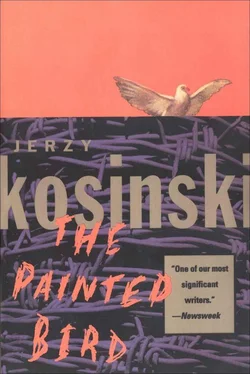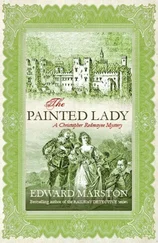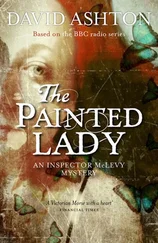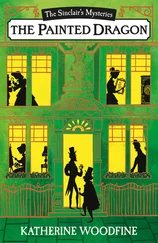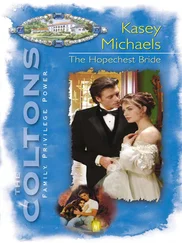Jerzy Kosiński - The Painted Bird
Здесь есть возможность читать онлайн «Jerzy Kosiński - The Painted Bird» весь текст электронной книги совершенно бесплатно (целиком полную версию без сокращений). В некоторых случаях можно слушать аудио, скачать через торрент в формате fb2 и присутствует краткое содержание. Год выпуска: 1965, ISBN: 1965, Жанр: Детская проза, на английском языке. Описание произведения, (предисловие) а так же отзывы посетителей доступны на портале библиотеки ЛибКат.
- Название:The Painted Bird
- Автор:
- Жанр:
- Год:1965
- ISBN:978-0-8021-9575-3
- Рейтинг книги:4 / 5. Голосов: 1
-
Избранное:Добавить в избранное
- Отзывы:
-
Ваша оценка:
- 80
- 1
- 2
- 3
- 4
- 5
The Painted Bird: краткое содержание, описание и аннотация
Предлагаем к чтению аннотацию, описание, краткое содержание или предисловие (зависит от того, что написал сам автор книги «The Painted Bird»). Если вы не нашли необходимую информацию о книге — напишите в комментариях, мы постараемся отыскать её.
The Painted Bird — читать онлайн бесплатно полную книгу (весь текст) целиком
Ниже представлен текст книги, разбитый по страницам. Система сохранения места последней прочитанной страницы, позволяет с удобством читать онлайн бесплатно книгу «The Painted Bird», без необходимости каждый раз заново искать на чём Вы остановились. Поставьте закладку, и сможете в любой момент перейти на страницу, на которой закончили чтение.
Интервал:
Закладка:
Some of the peasants said that when the Soviet commissars came they would distribute the land fairly to everyone, taking from the rich and giving to the poor. It would be the end of the exploiting landlords, of corrupt officials and brutal policemen.
Others violently disagreed. Swearing on their holy crosses they shouted that the Soviets would nationalize everything right down to wives and children. They looked at the glare in the eastern sky and shouted that the coming of the Reds meant that people would turn away from the altar, forget the teaching of their ancestors, and give themselves up to sinful lives until God’s justice made them pillars of salt.
Brother fought against brother, fathers swung axes against sons in front of their mothers. An invisible force divided people, split families, addled brains. Only the elders remained sane, scurrying from one side to the other, begging the combatants to make peace. They cried in their squeaky voices that there was enough war in the world without starting one in the village.
The thunder beyond the horizon was coming nearer. Its roll cooled the quarrels. People suddenly forgot about Soviet commissars or divine wrath in their rush to dig pits in their barns and cellars.
They hid stores of butter, pork, and calves’ meat, rye, and wheat. Some secretly dyed sheets red for use as flags to greet the new rulers, while others hid away in safe places crucifixes, the figures of Jesus and Mary, and icons.
I did not understand all of it, but I sensed the urgency in the air. No one paid any attention to me any more. I wandered among the huts, hearing sounds of digging, nervous whispers, and prayers. As I lay in the fields with my ear to the ground, I could hear a thudding sound.
Was it the Red Army coming? The throbbing in the earth was like a heartbeat. I was wondering why, if God could make sinners into pillars of salt so easily, salt was so expensive. And why didn’t He turn some sinners into meat or sugar? The villagers certainly needed these as much as salt.
I lay on my back looking at the clouds. They floated by in such a way that I myself seemed to be floating. If it was true that women and children might become communal property, then every child would have many fathers and mothers, innumerable brothers and sisters. It seemed to be too much to hope for. To belong to everyone! Wherever I might go, many fathers would stroke my head with firm, reassuring hands, many mothers would hug me to their bosoms, and many older brothers would defend me against dogs. And I would have to look after my smaller brothers and sisters. There seemed to be no reason for the peasants to be so afraid.
The clouds dissolved into one another, becoming now darker, now lighter. Somewhere high above them God directed it all. I understood now why He could hardly spare time for a small black flea like me. He had vast armies, countless men, animals, and machines battling beneath Him. He had to decide who was to win and who was to lose; who was to live and who was to die.
But if God really decided what was to happen, why did the peasants worry about their faith, the churches, and the clergy? If the Soviet commissars really intended to destroy the churches, desecrate the altars, kill the priests, and persecute the faithful, the Red Army would not have the remotest chance of winning the war. Even the most overworked God could not overlook such a menace to His people. But then would not that mean that the Germans, who also demolished churches and murdered people, would prove the winners? From God’s point of view it seemed to make more sense if everyone lost the war, since everyone was committing murder.
“Common ownership of wives and children,” the peasants said. It sounded rather puzzling. Anyway, I thought, with a little goodwill the Soviet commissars might perhaps include me among the children. Although I was smaller than most eight-year-old boys, I was almost eleven now and it disturbed me that the Russians might classify me as an adult or, at least, not regard me as a child. In addition, I was a mute. I also had trouble with food, which sometimes came up from my stomach undigested. I surely deserved to become common property.
One morning I noticed unusual activity on the bridge. Helmeted soldiers were swarming over it, dismantling the cannon and machine-guns, hauling down the German flag. As large trucks went westward from the other side of the bridge, the harsh sound of the German songs faded. “They are running away,” said the peasants. “They have lost the war,” whispered the bolder ones.
Next day at noon a band of mounted men rode up to the village. There were a hundred of them, perhaps more. They seemed to be one with their horses; they rode with marvelous ease, without any set order. They wore green German uniforms with bright buttons and forage caps pulled down over their eyes.
The peasants instantly recognized them. They screamed in terror that the Kalmuks were coming and the women and children must hide before they could be seized. For months in the village many terrible tales had been told about these riders, usually referred to as Kalmuks. The peasants said that when the once invincible German Army had occupied a large area of Soviet land it was joined by many Kalmuks, mostly volunteers, deserters from the Soviets. Hating the Reds, they joined the Germans who permitted them to loot and rape in the manner of their war customs and manly traditions. This is why the Kalmuks were sent to villages and towns that were to be punished for some noncompliance and, particularly, to those towns that lay in the path of the advancing Red Army.
The Kalmuks rode at full gallop, bent over their horses, using their spurs and uttering hoarse cries. Under their unbuttoned uniforms one could see bare brown skin. Some rode without saddles, some carried heavy sabers at their belts.
Wild confusion seized the village. It was too late for flight. I looked at the horsemen with keen interest. They all had black oily hair which glistened in the sun. Almost blue-black, it was even darker than mine, as were also their eyes and their swarthy skins. They had large white teeth, high cheekbones, and wide faces that looked swollen.
For a moment, as I looked at them, I felt great pride and satisfaction. After all, these proud horsemen were black-haired, black-eyed, and dark-skinned. They differed from the people of the village as night from day. The arrival of these dark Kalmuks drove the fair-haired village people almost insane with fear.
In the meantime the riders pulled up their horses between the houses. One of them, a squat man in a fully buttoned uniform and an officer’s cap, shouted orders. They jumped off their horses and tied them up to fences. From their saddles they took pieces of meat that had been cooked by the heat of horse and rider. They ate this blue-gray meat with their hands and drank out of gourds, coughing and spluttering as they swallowed.
Some were already drunk. They rushed into the huts and grabbed the women who were not hidden. The men tried to defend them with their scythes. A Kalmuk cut down one of them with a single stroke of his saber. Others tried to run away but were stopped by bullet shots.
The Kalmuks scattered throughout the village. The air was filled with screams from every quarter. I rushed into the middle of a small thick cluster of raspberry bushes right in the center of the square and flattened myself like a worm.
As I watched carefully, the village exploded in panic. Men tried to defend the houses which Kalmuks had already entered. More shots rang out and a man wounded in the head ran around in circles blinded by his own blood. A Kalmuk cut him down. The children scattered wildly, stumbling over ditches and fences. One of them ran into the bushes where I was hiding but, seeing me, ran out again to be trampled by galloping horses.
Читать дальшеИнтервал:
Закладка:
Похожие книги на «The Painted Bird»
Представляем Вашему вниманию похожие книги на «The Painted Bird» списком для выбора. Мы отобрали схожую по названию и смыслу литературу в надежде предоставить читателям больше вариантов отыскать новые, интересные, ещё непрочитанные произведения.
Обсуждение, отзывы о книге «The Painted Bird» и просто собственные мнения читателей. Оставьте ваши комментарии, напишите, что Вы думаете о произведении, его смысле или главных героях. Укажите что конкретно понравилось, а что нет, и почему Вы так считаете.
